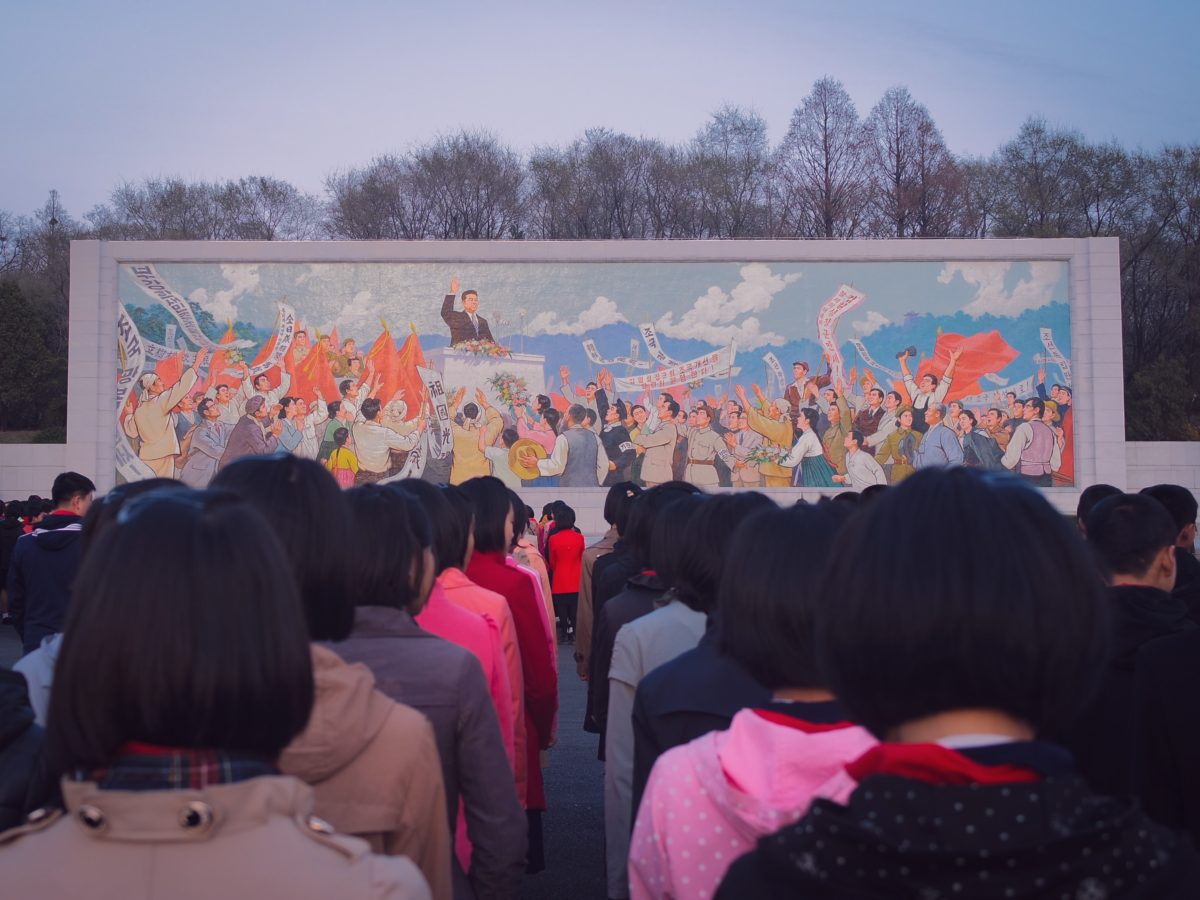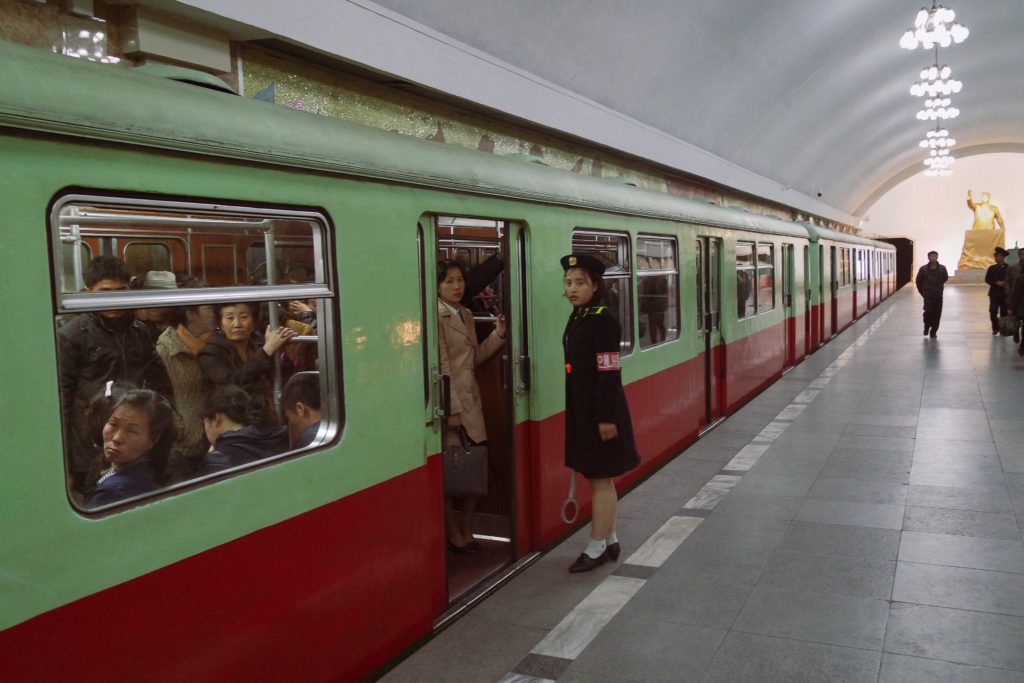
70 years ago, opposing sides of the Cold War divided the Korean Peninsula, which led to the establishment of the Democratic People’s Republic of Korea, commonly known as North Korea.
North Korea is one of the most secretive and reclusive regimes in the world. There have been recurring famines and humanitarian crises, claiming the lives of millions of people. The U.S. State Department has designated North Korea as a Country of Particular Concern because of its “particularly severe violations of religious freedom,” including the arrest, torture and even execution of people of faith. For 12 consecutive years, Open Doors USA has named North Korea the most dangerous country for Christians.
Such was not always the case. The capital city, Pyongyang, was once known as the Jerusalem of the East for its religious fervor, and 2007 marked the centennial of what was known as the Pyongyang revival. We asked Jamie Kim, founder of Reah International, to shed some light on the situation inside of this enigmatic country.

First Fruit: The late Kim Il-Sung is reported to have said he was the grandson of a Protestant minister and that his father was an elder in the Presbyterian Church. And yet, in the 1970s, Pyongyang proudly insisted that the country was “free from religious superstitions.” What does religious persecution look like inside of North Korea?
Jamie: The Kim family, now in the third generation of rule, has their ways of keeping “order.” During the 1950s and 60s, there was huge persecution of Christians all across North Korea. But in the 1980s there was a Protestant pastor, a Korean-American named Moon, who went into North Korea and developed a very good relationship with Kim Il-Sung. This prompted him to then declare that there is religious freedom in North Korea. During that period people were open to Christianity and faith.
In terms of foreigners going in to “proselytize,” this is highly illegal. Similar to China, North Korea wants a church that is not influenced by foreigners. You are not allowed to leave bibles or distribute bibles or Christian materials. It’s perfectly all right to pray for people and to show Christian kindness. Although we are not allowed to proselytize, when people ask us questions about our faith and the reasons we are residing or working in North Korea, we have the freedom to share the hope that we have in Christ. Some foreigners think that they can proselytize in North Korea, and I think it’s still not time yet to work in that manner.
When former president George W. Bush coined the term “axis of evil”, we consider North Korea a force of darkness and they in turn consider the US their Public Enemy #1. And so when Christians go in with this kind of framework to understand North Korea, we cannot help but have a negative view of Koreans and North Korea. None of us who have been engaged in North Korea for many years are there because it’s the most pleasant country to work or live in but because we know without a doubt that God loves the people in North Korea. And so there’s a Father’s heart toward the people. Just as the father yearns and aches for the prodigal son, we need to have that same heart as we approach the people in North Korea.
First Fruit: Despite all the challenges, what evidence have you seen of God at work?
Jamie: A lot of people in North Korea are disillusioned by the government. They really believed that the state was for the people and that they could depend upon the state to provide for them during the good times and the bad times. But they were proven wrong, and so many people today are losing confidence in the state providing for all of their needs. When Christian foreigners work in North Korea and rub shoulders with them, we can tell that they are questioning the truth of what the state teaches. When they see that we aren’t as ruthless as the state depicts, by simply residing and interacting with North Koreans, foreigners and especially Christians have a huge impact on the people. So although we are not able to evangelize overtly, there’s a worldview that changes.
God is very much at work among these people, and that human elements is what Reah is trying to relate to the Global Church so that Christians can be empowered with information, knowledge and the know-how to engage North Korea. It is a very difficult country to understand and to work in. Despite this, we are aware of over 4,000 foreigner-initiated projects that have been implemented between 2005-2012 in everything from business, economic, education, health, medical field, nutrition, food production. 55% of these projects have been in the humanitarian area.
First Fruit: What is the focus of Reah International’s work?
Jamie: Reah means “friends of God” (John 15:15). With friendship comes the responsibility and privilege of partnering with Jesus to change history and make history.
Reah’s focus is on expat Christians working among North Koreans. We believe that by encouraging the spiritual and relational health of the Body of Christ operating inside of North Korea, we will have a greater impact on the people of North Korea. And there is nothing illegal about equipping foreign Christians in North Korea. So we are working within the parameters of the North Korean law and the Chinese law by focusing on the expatriates.
We feel called to do the work of reconciliation. Reconciliation should be the major ministry of Christians all over the world — whether its political, economic, educational… in every way, reunification is a good thing. This is the framework reorienting Reah’s ministry. We want to partner with God in praying that reunification will happen in our generation. God delights in a proactive approach to praying for the changing of history.
North Koreans talk about reunification all the time. This is what keeps them going. It’s their only hope. When East and West Germany reunited, it took a huge toll on West Germany for the first 10-15 years. 25 years later, both sides have really benefited from reunification. Germany is the leading country in EU politically/economically.
This is something Christians should be praying for and desiring. We exhort Christians to pray for the quickening of reunification of two countries, reconciliation of two peoples, for the two countries to become more prosperous. There will initially be tremendous sacrifice.
First Fruit: Is there anything more you’d like to add?
Jamie: One message to global Christians reading this blog is that before we pray for change in North Korea, we need to pray for the Body of Christ, you and me. Reah is initiating the One Christ One Body Campaign for the next two years. This is a campaign based upon John 17 that challenges us to take our relationship with God and Jesus, and with one another in a deeper manner. Before the Church goes into North Korea in any significant manner, we need to deepen our relationship with the Triune God, and be completely united with one another.